#ellager
Text
What do you mean only eat foods you can pronounce all the ingredients in? Most of the crap you would be willing to eat you can’t pronounce even half of the things in. Like, wtf is a punicalagin? You have no freakin clue, do you? What about anthocyanins? Do those sound good for you? Cause they are
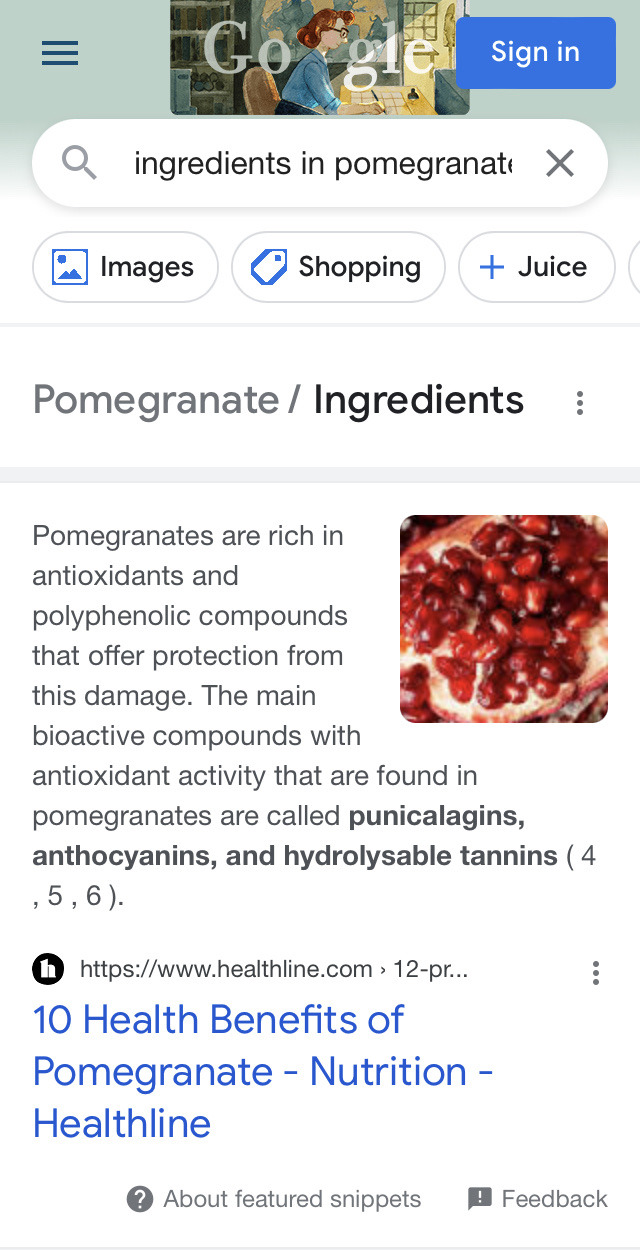
Stop it with the fear mongering and classism. People have the right to eat what they can afford without having to listen to you rant on subjects you obviously know nothing about.
#mine#punicic acid#ellagic acid#punicalagin#Gallic acid#punicalin#urolithin a#urolithin b#cyanidin-3.5-o-diglucoside#Chrysanthemin#and#Myrtillin#are the chemical components of a fresh pomegranate#anything sounds scary if you get granular enough with it’s components
1 note
·
View note
Text
PURE STRAWBERRY SEED OIL
It contains Omega 6 and 9 necessary fatty acids, which hydrate and moisturize the skin layers in depth. It contains chemicals that protect the skin from moisture loss induced by sun exposure and other environmental stresses. It also contains Vitamin E, which is already proven to help preserve skin health and the skin's natural barrier. Organic Strawberry Seed Oil is a God-sent oil for delaying the aging process. It contains a unique molecule called Ellagic acid, which is an effective antioxidant and anti-inflammatory. It aids in the preservation of collagen, which helps to maintain skin healthy, flexible, lifted, and youthful. The additional antioxidants included in Strawberry seed oil combat free radical effects including dullness, discoloration, fine wrinkles, and spots.

#ellagic acid#usda certified#carrier oil#wrinkle free#youthful skin#healthy skin#anti inflammatory#microorganisms#anti bacterial
0 notes
Text
Unlocking the Power of Ellagic Acid | Samriddh Nutra's Expert Insights
Discover the benefits of Ellagic Acid with Samriddh Nutra! Explore our expert insights on this potent compound, its health advantages, and how our products harness its potential for your well-being. Elevate your health journey with us today!
0 notes
Text
Foods You Can Eat Instead of Taking Vitamins and Supplements 🍎🥥🥦🥑🍌
Vitamin A: Carrots, sweet potatoes, spinach, kale.
B Vitamins: Whole grains, meat, eggs, nuts, legumes.
Vitamin B1 (Thiamine): Whole grains, legumes, nuts, pork, fortified cereals.
Vitamin B2 (Riboflavin): Dairy products, lean meats, almonds, leafy greens.
Vitamin B3 (Niacin): Poultry, fish, nuts, legumes, whole grains.
Vitamin B5 (Pantothenic Acid): Meat, poultry, eggs, avocado, whole grains.
B6: Chicken, turkey, fish, bananas, chickpeas.
Folate (Vitamin B9): Leafy greens, legumes, citrus fruits, fortified grains.
Vitamin B12: Animal products (meat, fish, dairy), fortified plant-based foods.
Vitamin C: Citrus fruits, strawberries, bell peppers.
Vitamin D: Fatty fish (salmon, mackerel), fortified dairy products, sunlight.
Vitamin E: Sunflower seeds, almonds, vegetable oils, nuts, spinach, broccoli.
Vitamin F (Essential Fatty Acids): Fatty fish, flaxseeds, chia seeds, walnuts.
Vitamin H (Biotin): Eggs, nuts, sweet potatoes, salmon, avocado.
Vitamin K: Leafy greens (kale, spinach), broccoli, Brussels sprouts.
Vitamin K2: Fermented foods (natto, cheese), animal products, leafy greens.
Vitamin L1 (Anthranilic Acid): Cruciferous vegetables (cabbage, cauliflower), legumes.
Vitamin P (Bioflavonoids): Citrus fruits, berries, onions, green tea.
Vitamin Q (Ubiquinone): Fatty fish, organ meats, spinach, cauliflower.
Vitamin T (L-carnitine): Red meat, poultry, fish, dairy products.
Vitamin U (S-Methylmethionine): Cabbage, broccoli, Brussels sprouts.
Betaine: Beets, spinach, whole grains, seafood.
Boron: Fruits (apples, pears), legumes, nuts, avocado.
Calcium: Dairy products, leafy greens (kale, collard greens), almonds.
Carnosine: Beef, poultry, fish.
Carnitine: Red meat, dairy products, fish.
Catechins: Green tea, black tea, dark chocolate.
Choline: Eggs, liver, beef, broccoli, soybeans.
Creatine: Red meat, fish, poultry.
Chromium: Broccoli, whole grains, nuts, brewer's yeast.
Chondroitin: Cartilage-rich foods (bone broth, connective tissue of meat).
Copper: Shellfish, nuts, seeds, organ meats, lentils.
Coenzyme Q10 (CoQ10): Fatty fish, organ meats, nuts, soybean oil.
Ellagic Acid: Berries (strawberries, raspberries), pomegranates.
Glucosinolates: Cruciferous vegetables (cabbage, broccoli, cauliflower).
Glucosamine: Shellfish (shrimp, crab), bone broth, animal connective tissues.
Glutamine: Dairy products, meat, poultry, cabbage.
Inositol: Citrus fruits, beans, nuts, whole grains.
Iodine: Seafood, iodized salt, dairy products.
Iron: Red meat, poultry, beans, lentils, spinach.
L-Theanine: Mushrooms, black tea, white tea, guayusa.
Lignans: Flaxseeds, whole grains, cruciferous vegetables.
Lutein and Zeaxanthin: Leafy greens (spinach, kale), corn, eggs.
Lycopene: Tomatoes, watermelon, pink grapefruit.
Magnesium: Spinach, nuts, seeds, whole grains, beans.
Manganese: Nuts, seeds, whole grains, leafy greens, tea.
Melatonin: Cherries, grapes, tomatoes.
Omega-3 fatty acids: Flaxseeds, chia seeds, walnuts, fatty fish.
PABA (Para-Aminobenzoic Acid): Whole grains, eggs, organ meats.
Pantothenic Acid (Vitamin B5): Meat, poultry, fish, whole grains, avocado
Pectin: Apples, citrus fruits, berries, pears.
Phosphorus: Dairy products, meat, poultry, fish, nuts.
Prebiotics: Garlic, onions, leeks, asparagus, bananas (unripe), oats, apples, barley, flaxseeds, seaweed.
Probiotics: Yogurt, kefir, fermented foods (sauerkraut, kimchi).
Potassium: Bananas, oranges, potatoes, spinach, yogurt.
Polyphenols: Berries, dark chocolate, red wine, tea.
Quercetin: Apples, onions, berries, citrus fruits.
Resveratrol: Red grapes, red wine, berries, peanuts.
Rutin: Buckwheat, citrus fruits, figs, apples.
Selenium: Brazil nuts, seafood, poultry, eggs.
Silica: Whole grains, oats, brown rice, leafy greens.
Sulforaphane: Cruciferous vegetables (broccoli, Brussels sprouts), cabbage.
Taurine: Meat, seafood, dairy products.
Theanine: Green tea, black tea, certain mushrooms.
Tyrosine: Meat, fish, dairy products, nuts, seeds.
Vanadium: Mushrooms, shellfish, dill, parsley, black pepper.
Zeatin: Whole grains, legumes, nuts, seeds.
Zinc: Oysters, beef, poultry, beans, nuts, whole grains.
#women health#health and wellness#healthy diet#healthy living#healthy lifestyle#womens health#health#health tips#wellness#levelupjourney#dream girl guide#dream girl tips#dream girl journey#health is wealth#clean girl aesthetic#clean girl#it girl#nutrition#supplements#organic#food#nutrients#healthyhabits#healthy life tips#self love journey#self love#dream life#dream girl
2K notes
·
View notes
Text
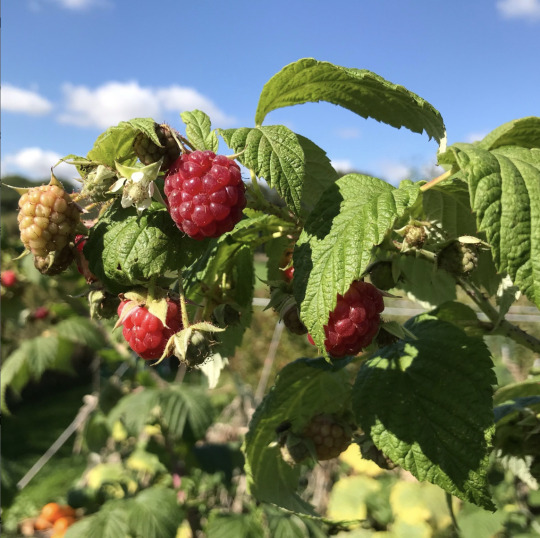
A flashback to the summer and the luscious red raspberries in the garden. Raspberries (Rubus idaeus) are a universally popular fruit and flavour for desserts and candies, but did you know that the leaves may have medicinal value in women’s health? Fresh or dried raspberry leaves can be steeped in boiling water to make a tangy, refreshing grassy-flavoured tea. The tea prepared from the leaves contain high concentrations of vitamin C, vitamin E, calcium, zinc, antioxidant flavonoids, and ellagic acid (thought to help prevent cancer).
There’s a medical hypothesis that potassium and magnesium deficiency is one of the main underlying factors of PMS, and that’s where raspberry leaf tea can help. People who experience painful menstrual cramps may find drinking raspberry leaf tea during the first days of their period beneficial. The leaves are rich in bioavailable (easily absorbed by the human body) magnesium. Magnesium soothes muscle cramps by relaxing the smooth muscles, which are the type found in the uterus. Raspberry leaves are also high in potassium, and medical studies indicate eating potassium rich foods during your period can help with pain and bloating. Raspberry leaves also contain an alkaloid called fragrine, which may act to relax the smooth muscles of the uterus.
Raspberry leaf tea also has many traditional uses in pregnancy and labor, and there is medical evidence to support that drinking the tea during pregnancy can lower the risk of complications during birth. The medical consensus is that raspberry leaf tea is generally safe, but if you are interested in drinking it during pregnancy please talk to your doctor first.
If you find the plain raspberry leaf tea insipid, try combing it with with green tea, lemon balm, and spearmint for a refreshing drink that’s suitable for all phases of your monthly cycle.
#raspberry#raspberryleaf#raspberryleaftea#raspberryleafteapregnancy#raspberryleafteapms#herbalmedicine#womenshealth#herbalmedicinewoman#pms#herbalpms#herbalmedicineforpms#herbalmedicineforwomen#magnesium#potassium#alkaloid#musclecramprelief#redgreenblue#katia_plantscientist
#katia plant scientist#botany#plant biology#plants#plant science#herbal medicine#raspberry#raspberry leaf#women's health#menstruation#pregnancy#herbal tea#magnesium#potassium#nutrition#wellness#health and wellness#plant chemistry#raspberries#fruit#summer#cottagecore#gardening#homesteading
11 notes
·
View notes
Text
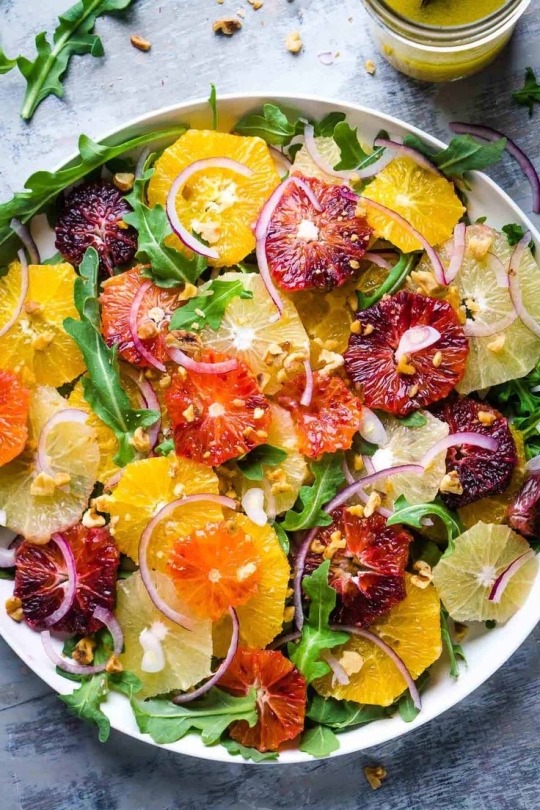
There are several fruits that are known for their immune-boosting properties due to their high levels of vitamins, antioxidants, and other nutrients. Some of the best fruits to help boost your immune system include:
1. Citrus fruits: Citrus fruits like oranges, lemons, grapefruits, and limes are rich in vitamin C, which is known to increase the production of white blood cells, which are key to fighting infections.
2. Berries: Berries such as strawberries, blueberries, raspberries, and blackberries are packed with antioxidants like vitamin C and polyphenols, which help protect the body against oxidative stress and inflammation.
3. Kiwi: Kiwi is an excellent source of vitamin C, vitamin K, and antioxidants, which can help boost the immune system and support overall health.
4. Papaya: Papaya is rich in vitamin C, vitamin A, and other antioxidants like beta-carotene, which can help strengthen the immune system and protect against infections.
5. Pineapple: Pineapple contains bromelain, an enzyme with anti-inflammatory properties that can help boost immunity and reduce inflammation in the body.
6. Mango: Mango is high in vitamin C, vitamin A, and other nutrients that can support immune function and help protect against illness.
7. Apples: Apples are a good source of fiber, vitamin C, and antioxidants, which can help support a healthy immune system and promote overall well-being.
8. Pomegranate: Pomegranate is rich in antioxidants, including vitamin C and ellagic acid, which can help boost the immune system and protect against chronic diseases.
Incorporating a variety of these immune-boosting fruits into your diet can help support a strong and healthy immune system. It's important to consume a balanced diet that includes a mix of fruits, vegetables, whole grains, lean proteins, and healthy fats to ensure optimal immune function and overall health.
#food diary#food log#healthy food#comfort food#fast food#food photography#foodie#food#foodpics#foodlover#japanese food#foodmyheart#tw food#healthy salad recipes#lunch recipes#pasta recipes#pasta recipe#salad recipes#soup recipe#recipe#reciprocity#recipies#recipes#cozy autumn#autumn cozy#cozy fall#cozyhome#cozy cozy#cozy living#cozy art
9 notes
·
View notes
Text

Berries and cognitive function are closely related
and research has shown that consuming berries can have a positive impact on cognitive function, particularly in older adults. Here are some ways in which berries may benefit cognitive function:
Antioxidant properties: Berries are rich in antioxidants, which help protect the brain from oxidative stress and inflammation. This can lead to improved cognitive function and a reduced risk of age-related cognitive decline.
Neuroprotection: Berries contain various polyphenolic compounds, such as anthocyanins, flavonoids, and phenolic acids, which have been shown to have neuroprotective effects. These compounds may help protect against age-related neurodegenerative diseases, such as Alzheimer's and Parkinson's.
Inflammation reduction: Berries have anti-inflammatory properties, which can help reduce inflammation in the brain and potentially reduce the risk of cognitive decline.
Cognitive improvement: Studies have shown that consuming berries can improve cognitive function, including attention, memory, and processing speed. For example, a study published in the Journal of Agricultural and Food Chemistry found that consuming blueberry juice improved memory and cognitive function in older adults.
Neuroplasticity: Berries may also help promote neuroplasticity, which is the brain's ability to adapt and change in response to new experiences. This can lead to improved cognitive function and a reduced risk of age-related cognitive decline.
Some specific berries that may have a positive impact on cognitive function include:
Blueberries: Blueberries are one of the most well-studied berries when it comes to cognitive function. They are rich in anthocyanins, which have been shown to have neuroprotective effects.
Strawberries: Strawberries are another berry that has been shown to have a positive impact on cognitive function. They contain a variety of polyphenolic compounds, including ellagic acid, which has been shown to have anti-inflammatory effects.
Raspberries: Raspberries are a good source of antioxidants and may help protect against oxidative stress and inflammation in the brain.
Cranberries: Cranberries are a good source of flavonoids, which have been shown to have anti-inflammatory effects and may help protect against age-related cognitive decline.
Incorporating berries into your diet is a simple and delicious way to support cognitive function and overall health. Enjoy them as a snack, add them to your oatmeal or yogurt, or blend them into a smoothie.
more: https://www.ncbi.nlm.nih.gov/pmc/articles/PMC4192974/
5 notes
·
View notes
Photo

Porous crystals made from plant extracts purify water from pharmaceutical pollutants
Researchers from Stockholm University have developed porous crystals made from pomegranate extract to capture and degrade pharmaceutical molecules found in local municipal wastewater. The research is published in the scientific journal Nature Water.
Pharmaceutical compounds affect the human body to improve our health, but they can also have unintentional adverse effects for the well-being of wildlife. Hence wastewater treatment plants are facing the challenge of removing emerging organic contaminants (EOCs) such as active pharmaceutical ingredients, and therefore new materials and technologies are required.
One strategy for removing pollutants from water is by using porous materials that behave like sponges. Metal-organic frameworks, so called MOFs, are a type of nanoporous material that are made of metal ions and organic molecules. Most MOFs are made using synthetic organic molecules. But now researchers from the Department of Materials and Environmental Chemistry, Stockholm University, have managed to develop new porous MOFs using a naturally occurring molecule found in plants—ellagic acid.
Read more.
#Materials Science#Science#Pollutants#Porosity#Clean water#Metal organic framework#Biomaterials#Stockholm University
44 notes
·
View notes
Text
The cancer industry would lose billions if people knew this.
The Vigilant Fox
Sep 02, 2024
1. Black Raspberries
Black raspberries contain ellagic acid, a natural substance that has been shown to prompt cancer cells to “commit suicide.”
This powerful cancer-fighting food is packed with anthocyanins and antioxidants, which are compounds that can neutralize harmful free radicals in the body.
They also have a very high ORAC score, meaning they are exceptionally good at absorbing oxygen radicals. “This is real medicine,” cancer nutrition specialist Dr. Patrick Quillin attests.Image: Flickr.com
2. Figs
Figs contain a powerful enzyme called ficin, which is one of the more essential phytochemicals present in this fruit.
Ficin triggers apoptosis in cancer cells, eliminating them through programmed cell death.Image: Shutterstock/Khimraj Shrestha
3. Peaches
A Harvard study showed that eating peaches just twice a week could lower the risk of breast cancer by a staggering 40%.
“If that was a drug, it would have been headlines in USA Today, CNN, everywhere. And the drug company's stock would have doubled,” says Dr. Quillin says.Image: Shutterstock/Nature’s clicks
Eating cancer-fighting foods is only half the battle; you also need to eliminate the harmful substances. Take aspartame, for instance—a common ingredient in diet sodas and “sugar-free” products.
Did you know that the FDA Commissioner who helped approve aspartame took a job with a promoter of aspartame within months? Arthur Hull Hayes Jr. left the FDA and landed a cushy job shortly after aspartame flooded the diet soda market.
What he never told the public was that “all the independent studies found harmful problems [with aspartame]. None of the ones sponsored by the maker found any problem.”
It turns out that aspartame comes with some serious health risks, but the health agencies still tell you that it's “safe.”
Dr. Russell Blaylock explains that the independent studies, free from industry bias, found aspartame:
• increases brain tumors by about six-fold
• increases breast cancer and breast tumors
• increases lung tumors and other tumors
So, throw out the diet soda, the “sugar-free” gum, and products like Equal and NutraSweet.
6 notes
·
View notes
Text
Papers Reviewed:
2021 Aug (Wong et al) - Pomegranate bioactive constituents target multiple oncogenic and oncosuppressive signaling for cancer prevention and intervention
2022 Feb (Cheshomi) - The effects of ellagic acid and other pomegranate (Punica granatum L.) derivatives on human gastric cancer AGS cells
2023 Jan (Teniente et al) - Anticancer Effect of Pomegranate Peel Polyphenols against Cervical Cancer
2023 Apr (Habchi et al) - Determination of the Antioxidant and Antiproliferative Properties of Pomegranate Peel Extract Obtained by Ultrasound on HCT-116 Colorectal Cancer Cell Line
2023 July (Rahman et al) - Pomegranate-specific natural compounds as onco-preventive and onco-therapeutic compounds: Comparison with conventional drugs acting on the same molecular mechanisms
3 notes
·
View notes
Text

Strawberries Halt Colon Cancer in New Study: Strawberry extracts were discovered to be so toxic to human colon cancer cells that they killed up to 95% of them in vitro after 48 hours. But how much strawberries do we need to eat to ward off cancer? Population studies have shown that American adults eating two servings weekly of strawberries (or blueberries) had 36% less colon cancer (1 serving = 80 grams). But more might be better: eating 75 grams daily has been linked to 44% less ER- breast cancer in women. Beyond cancer, this super berry offers several impressive health benefits: they may cut women’s risk of heart disease by 34% (dose: 3 servings weekly) and in clinical trials on humans they lowered cholesterol and triglycerides, reduced inflammation and increased blood levels of antioxidants (dose: 50 grams powdered strawberries daily). This super fruit is also low in sugar but high in dietary fiber, vitamin C and folic acid, and is one of the richest sources of cancer-fighting phenolic compounds and ellagic acid in our diets—and all this for just 30 calories per serving! No wonder strawberries are the #1 best-selling berry worldwide. And for those wanting a natural performance boost, strawberries are the perfect snack: a recent study showed they improved working memory, general cognitive ability, and even muscle coordination (in lab animals).
http://www.ncbi.nlm.nih.gov/pubmed/18211028
12 notes
·
View notes
Text
Using Pomegranate Seed Extract for Hair Growth: Is It Effective?
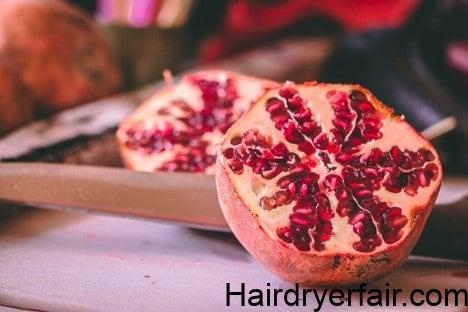
Is your hair feeling dry and lifeless despite cleansing and conditioning it every day? Well, it looks like your shampoo and conditioner might not be doing their job to keep your mane soft and healthy-looking. In fact, many hair growth nutrients are not found in these hair care products, which can affect hair growth. But with a hair growth serum, nutrients can intensely penetrate and provide what your hair is lacking.
If you believe that your locks are in dire need of deep nourishment, you can start using a serum with pomegranate seed extract. This type of fruity hair growth serum does not only contain potent nutrients, but it does bring a myriad of benefits for your growing locks. Check out the following benefits of pomegranate seed extract for your dull-looking tresses.
5 Benefits Your Hair Can Get From Pomegranate Seed Extract
There's more to eating juicy pomegranate fruits. You can also use the seeds for growing healthy locks. Here are five essential benefits that your hair can get from pomegranate seed extract.
- You can receive an ample supply of antioxidants for your hair follicles.
Your hair follicles can be sensitive to oxidation, which can lead to their miniaturization. It’s a good thing that pomegranate seed extract can be your go-to source for follicle-protecting phenolic compounds like anthocyanin, flavonoids, ellagitannins, and punicalagin. These phytoconstituents protect your hair follicles against free radicals caused by oxidative stress.
- You can enjoy the hair growth benefits of vitamins C and E.
Your hair will never get over vitamin nourishment. The pomegranate seed extract is rich in vitamins C and E, which can provide you with the best-looking locks. You need enough vitamin C to boost collagen production since your hair needs amino acids for keratinization. On the other hand, vitamin E has antioxidant qualities that also protect your hair against oxidative stress. Sustaining your locks with these vitamins will ensure your hair’s glorious days.
- You can protect your scalp from inflammations.
Your scalp can easily get irritated by bacterial invasions or sebum build-up, which can block hair follicles and hamper hair growth. A specific type of antioxidant known as punicic acid has strong anti-inflammatory properties that can prevent your scalp from suffering inflammations. The pomegranate seed extract is also a clarifying agent that can help remove excess oils on your scalp, thereby avoiding inflamed pores and aggravated follicles.
- Your hair strands get protected from aging and thinning.
Prolonged exposure to ultraviolet rays can age your hair prematurely, causing strands to become sparser, more sensitive, and greyer. But thanks to many researchers, they have found that pomegranate seed extract has potent antioxidants that can protect your tresses against UVB-ray damage. It can also encourage DNA restoration activity for your impaired hair follicles, thereby stimulating hair regrowth.
The pomegranate seed extract is also a pH balancer. It is especially useful for protecting your hair cuticles, resulting in smoother hair strands. The extract also acts as a humectant because of ellagic acid, a phytonutrient that locks in moisture for your tresses.
- Your hair can prevent baldness because of pomegranate seed extract.
A lack of keratinocyte proliferation is also a common culprit of hair loss problems since keratinocytes are essential for the onset's hair growth cycle. If left untreated, anagen follicles can be forced to shift phases and undergo premature shedding. Here's the good news: pomegranate seed extract can stimulate keratinocyte increase for hair follicle growth.
Include Pomegranate Seed Extract in Your Hair Care Regimen.
Finding a multipurpose hair growth product is not easy-peasy. Even your shampoo and conditioner might not be enough to target your hair's specific needs. Thus, you need something packed with active ingredients which can easily penetrate and get the recuperative job done for you. Therefore, you should try using pomegranate seed extract because it can mitigate your hair growth problems effectively. By including pomegranate seed serum in your hair care regimen, you'll never have to worry about your weary locks again.
Read the full article
2 notes
·
View notes
Text

Berries are rich in soluble fiber and have a high content of ellagic acid. The berries also have other antioxidant compounds that protect the body against different types of cancer. Among the berries, berries are very rich in antioxidants and nutrients, so they can be considered beneficial for the body. They have plenty of fiber, amino acids, and minerals. They have a high content of vitamins A, C and B12, folic acid and other vitamins that contribute to good health in the body.
#berries #blueberries #raspberries #blackberries #strawberry #fruit #healthyfruit #antioxidants #vitamin #folicacid
3 notes
·
View notes
Text
Unlocking Health Potential: Ellagic Acid's Benefits by Samriddh Nutra
Discover the power of ellagic acid with Samriddh Nutra! Explore how our premium formulations harness the potential of ellagic acid, offering a natural boost for your health and well-being. #EllagicAcid #SamriddhNutra
0 notes
Text
3 Healthy Superfoods to Eat Every Day
Nuts:
What can't nuts do? They're packed with healthy polyunsaturated fats and magnesium, two important nutrients for heart health. These nutrients may also offer protection against insulin resistance, which can lead to diabetes. Antioxidant compounds found in nuts, including ellagic acid and resveratrol, can reduce the wear and tear on your body from free radicals.

This lowers inflammation, which may reduce cancer risk. Plus, nuts provide insoluble fiber, which studies suggest may help you stay healthy by feeding beneficial gut bacteria. Spread nut butter on toast, grab a handful of nuts for a snack or make your own simple trail mix.
Broccoli:
This green powerhouse packs vitamins A, C and K (which helps with bone health), as well as folate.
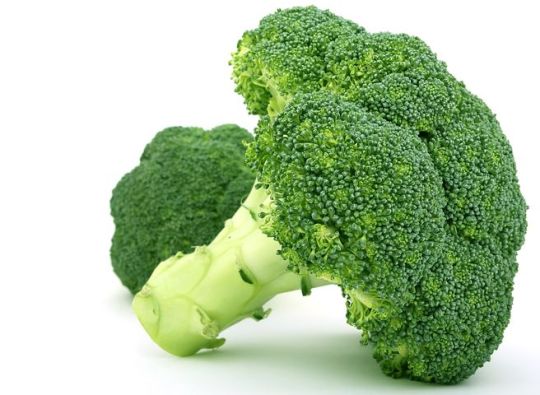
There is another reason broccoli frequently earns a top spot on "superfoods" lists: it delivers a healthy dose of sulforaphane, a type of isothiocyanate that is thought to thwart cancer by helping to stimulate the body's detoxifying enzymes.
Berries:
All berries are great sources of fiber—a nutrient that most Americans don't get enough of. Fiber helps keep your digestive system healthy and working properly, keeps you feeling full, and it's good for your heart. All berries are good for you, so be sure to mix it up.

In the winter, when berries aren't in season, grab frozen berries (without sweeteners) and use them in smoothies, oatmeal or even thawed in yogurt. Raspberries (one of the best breakfast foods for weight loss) boast the most fiber at 8 grams per cup and also contain ellagic acid, a compound with anti-cancer properties. The same amount of blueberries has half the fiber (4 grams), but is packed with anthocyanins, antioxidants that may help keep memory sharp as you age. A cup of strawberries contains 3 grams of fiber, but more than a full day's recommended dose of skin-firming vitamin C.
#healthy#healthyfood#healthy eating#social media marketing#digital marketing#online marketing#seo services#emailmarketing#brand marketing#marketing strategy
3 notes
·
View notes
Photo

A chance conversation at @burnside_coffee lead me to @whitehartbar with @katinka_rodriguez @gailgs and @ellags nice chewing the fat in this part of the city. #industrialdesign #melbourne #bar #shippingcontainer (at Whitehart Bar) https://www.instagram.com/p/Co4cCf4PwxZ/?igshid=NGJjMDIxMWI=
2 notes
·
View notes